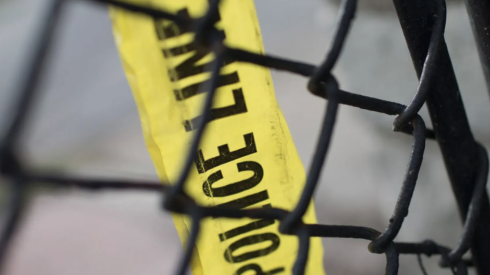Every time a police officer points a gun at someone, Chicago should have a record of it.
Pulling a weapon on someone is no idle threat. It is serious business, with potentially deadly consequences, for officers and civilians alike.
Shouldn’t we know when, where and why police officers are using that ultimate threat?
EDITORIAL
Shouldn’t we know when and why a rookie cop in a dangerous neighborhood brandished his weapon at a pedestrian, and how often veteran officers do the same in similar circumstances?
Why shouldn’t we know which officers tend to pull their firearm more often than other officers, though they all work in the same communities and face similarly perilous situations.
Not to punish cops, or to make their jobs too difficult by adding paperwork, as the police union claims.
But to make sure Chicago is served by safe and effective policing we all can trust.
That, after all, is the goal of the Chicago Police Department consent decree now being hammered out between lawyers for the city and Illinois Attorney General Lisa Madigan. The last sticking point in the negotiations is whether officers will be required to document the circumstances every time they pull their gun and point it at someone.
Madigan’s office reportedly backs the requirement. City Hall ought to get fully on board.
Chicago should follow in the footsteps of other cities, including Cleveland, Baltimore, New Orleans, Newark and Ferguson, Missouri, all of which operate under consent decrees that require police officers to document when they unholster their guns, according to City Hall Inspector General Joe Ferguson’s office.
It’s now a “pretty standard provision that those incidents be reported, tracked, analyzed and accounted for,” both in “the context of consent decrees and reforms outside of consent decrees,” Ferguson said earlier this week.
The recent police shootings of Harith Augustus in South Shore and Maurice Granton Jr. in Bronzeville have reignited the debate over when and why police use deadly force. The Civilian Office of Police Accountability is investigating both shootings, and the circumstances of both remain murky. There’s nothing cut-and-dried about either case, and we won’t know the full story until COPA finishes its job.
But, frankly, when it comes to police shootings, some officers will never believe a cop did anything wrong. They’ll never admit that a fellow officer shot someone they didn’t have to, or pulled out a gun too freely.
And some civilians are never going to give any cop a break. They will never acknowledge that when an officer sees a gun — a gun, not a cellphone or a wallet— pointed at him or her, or being waved around in a crowd, he or she has a right and a duty to maintain public safety by using their own weapon. Every cop also has a right to go home alive.
But between those two extremes are the rest of us, cops and civilians alike, who just want a police force we can believe in.
Most everyday folks don’t want to second-guess every split-second decision that an officer makes. We just want to be sure that officers de-escalate situations whenever possible, and use lethal force only when absolutely warranted.
Most cops want that too. No good cop wants to be put in harm’s way by a partner who’s quick to pull out his Glock when a Taser or words will do.
And, to state the obvious, good cops aren’t pulling out their weapon 10 times a day, which is why the police union’s claim that documenting each incident would be too “burdensome” is nonsense. There are cops — courageous and effective cops — who rarely pull their guns at all.
Chicago’s consent decree had better cross every ‘t’ and dot every “i,” and that means documenting police use-of-force as completely as possible.
Safe and fair policing is too important to Chicago to settle for less.
Send letters to letters@suntimes.com.





